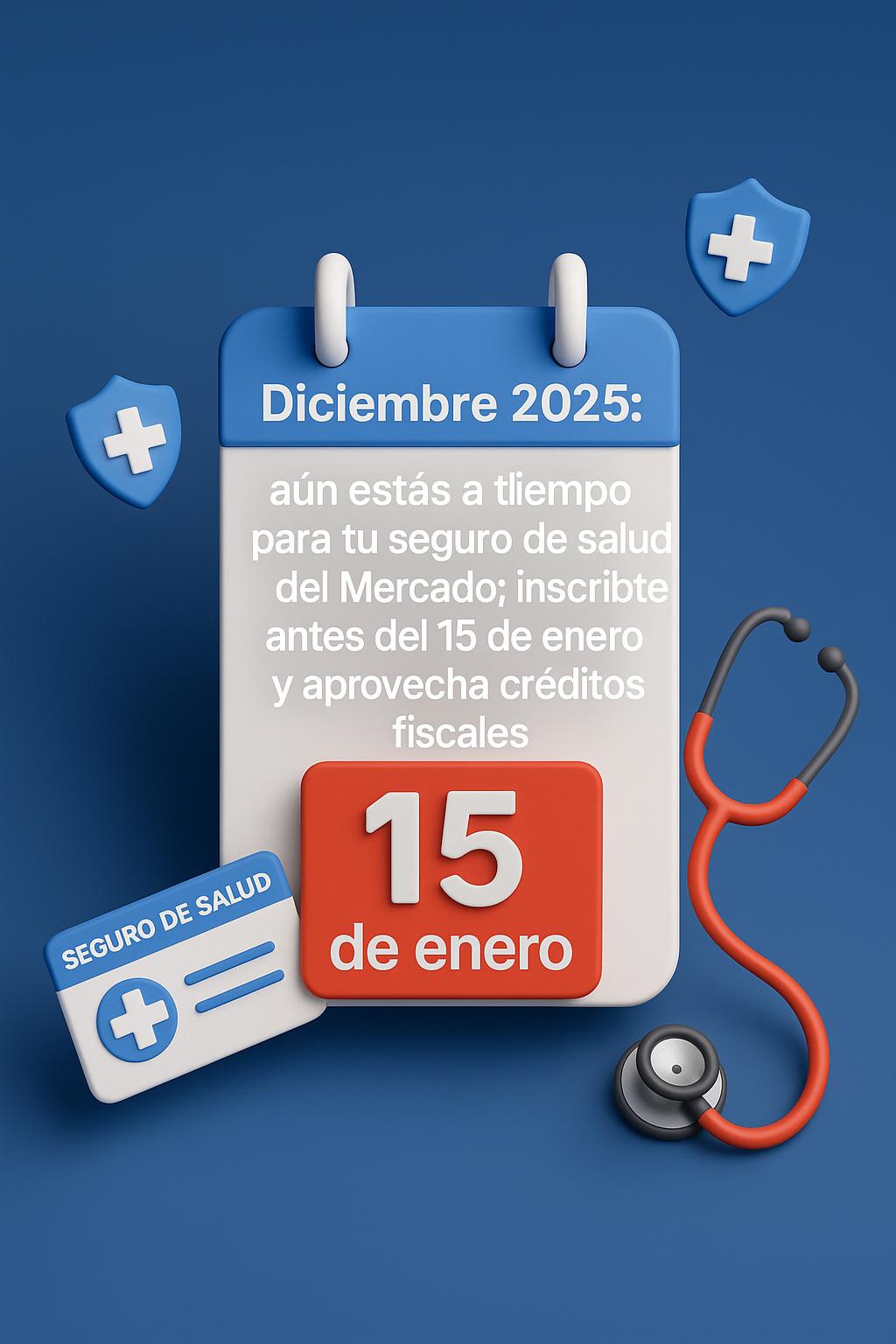Medical expenses can be tax deductible and represent significant savings if you declare them correctly. However, many people are unaware of what expenses are eligible and how they should report them. In this blog, we'll explore how deductions for medical expenses work, what qualifies as a deductible medical expense, and how you can make the most of these tax benefits. 🏥💊
What are Deductible Medical Expenses?
Deductible medical expenses are those health care costs that exceed a specific percentage of your adjusted gross income (AGI). In 2023, taxpayers can deduct unreimbursed medical expenses that exceed the 7.5% of your AGI. This includes a wide range of health-related expenses, from doctor visits to specialized treatments.
Example:
If you have an adjusted gross income of $50,000, you can deduct medical expenses that exceed $3,750 (7.5% of $50,000).
What Medical Expenses Are Deductible?
Common Qualifying Medical Expenses:
- Medical and Hospital Consultations: Payments made to doctors, dentists, surgeons and hospitals.
- Prescription Drugs: Medications prescribed for you by a doctor.
- Medical Tests and Treatments: Expenses for necessary medical procedures and tests.
- Health Insurance: Premiums paid for health insurance, including those paid for by private health plans.
- Medical Devices: Hearing aids, wheelchairs, corrective lenses, prosthesis, among others.
- Transportation Related to Medical Treatments: Transportation costs, such as taxis or fuel, to go to medical appointments may also be deductible.
Non-Deductible Expenses:
- Cosmetic Expenses: Procedures such as plastic surgery for cosmetic purposes do not qualify.
- Personal or General Expenses: Personal hygiene products or gyms are not deductible.
Relevant Statistical Data
The Impact of Medical Expenses on Taxpayers
A report from the Bureau of Labor Statistics shows that in 2021, families in the U.S. The U.S. spent an average of $5,451 in health care, including insurance premiums, treatment costs and medications (
Better Business Bureau
). As healthcare costs continue to rise, taking advantage of tax deductions for these expenses is an opportunity that should not be overlooked.
Increase in Medical Expenses in the Elderly
Data indicates that older adults (65+) benefit the most from medical expense deductions. According to the Center for Medicare and Medicaid Services, older adults spend approximately the 15% of your income in healthcare, making the deduction even more important for this group.
Wasting Deductions
Although many taxpayers have high medical expenses, only the 8% of American households take advantage of these deductions, according to a study by the IRS. This is due, in part, to a lack of knowledge about eligible expenses and the requirements to deduct them.
How to Calculate and Report Medical Expenses?
- Keep a Detailed Record: Save all receipts, bills, and medical documentation. This includes both the payments made and any reimbursement you received from health insurance.
- Calculate the AGI: Determine your adjusted gross income (AGI). This includes the sum of your income, minus certain adjustments such as contributions to retirement accounts or student loan interest.
- 7.5% limit: Calculate 7.5% of your AGI. You can only deduct medical expenses that exceed this limit.
- Form 1040, Schedule A: To deduct medical expenses, you'll need to itemize your deductions using the Annex A Of Form 1040.
Tips for Maximizing Your Deductions
- Group Medical Expenses: If you can, try to group your medical expenses into a single fiscal year. For example, if you know you'll need expensive medical treatment, it might be useful to pay for all visits and procedures in the same year to maximize your deduction.
- Review All Your Medical Expenses: Some medical expenses that qualify as deductions may go unnoticed. Be sure to carefully review all of your medical and related transportation bills.
- Consult with a Professional: Medical deductions can be complicated. A tax advisor can help you identify all deductible expenses and ensure that you meet IRS requirements.
Conclusion
Taking advantage of deductions for medical expenses can make a big difference in your tax return. Keeping a detailed record and understanding what expenses qualify as deductibles is key to reducing your tax burden. As healthcare costs continue to rise, it's important for taxpayers to be aware of these money-saving opportunities. Consult with a tax expert to ensure that you are maximizing your tax benefits.
Sources:
- Bureau of Labor Statistics - Consumer spending on healthcare
- Center for Medicare and Medicaid Services - Health expenditures for the elderly
- IRS - Deductions for medical expenses
#GastosMédicos #DeduccionesFiscales #AhorroFiscal



.png)




.jpg)
